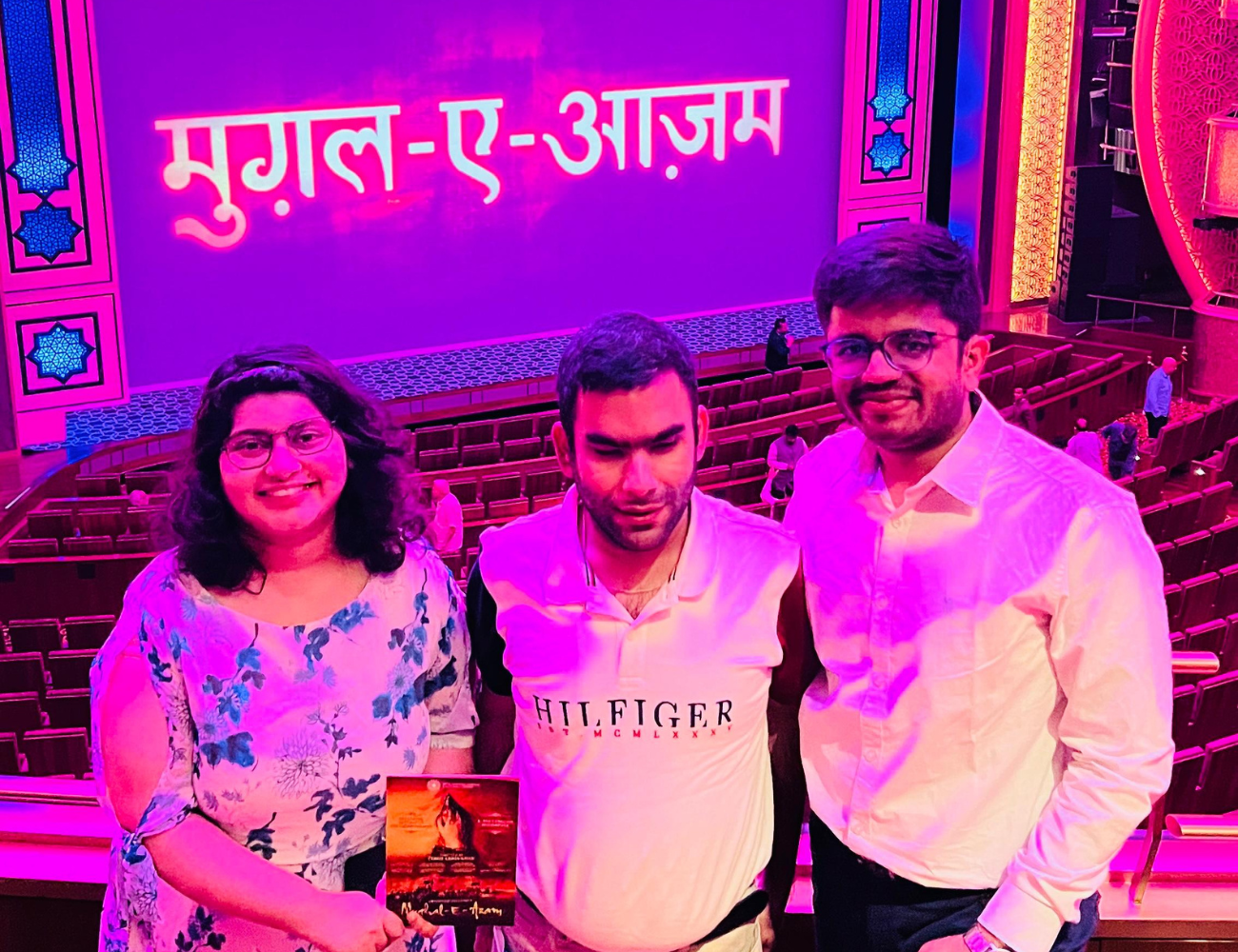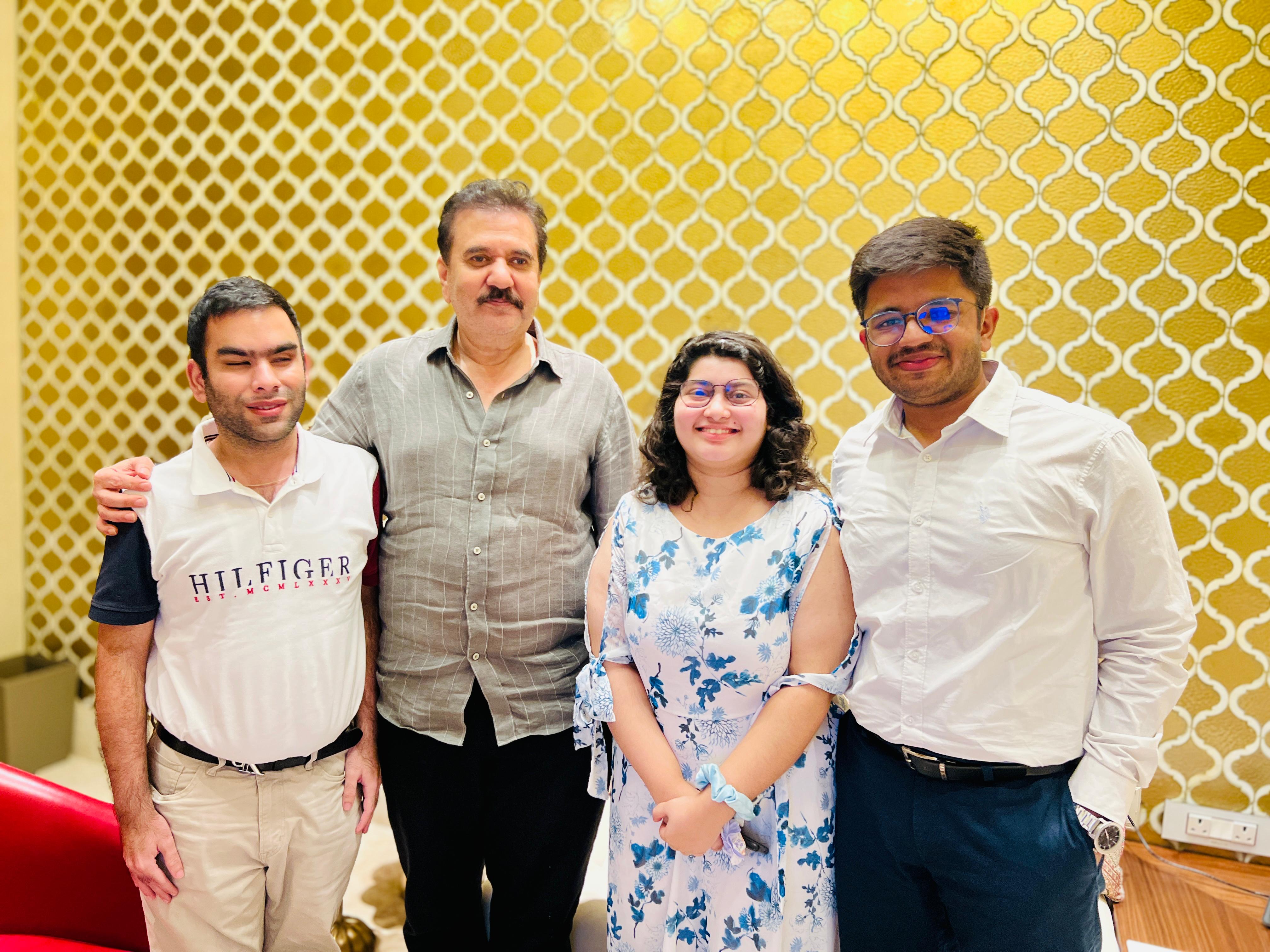In January, my colleagues, Anmol, Pulakita and I attended a production of Mughal-e-Azam: The Musical at the Grand Theatre at Mumbai’s Nita Mukesh Ambani Cultural Centre (NMACC). We’re people with varying kinds of levels of disability, and we’ve all had experiences of entertainment being inherently inaccessible in one way or the other. Locations can often be physically inaccessible. Sometimes, there are no adequate subtitles, audio descriptions, or other alternatives that make it easier for us to enjoy a performance. So, we were delighted — not only by the grandeur and emotional richness of the Mughal-e-Azam production — but also by the efforts that the NMACC made to bring down all these barriers.
It all began in January 2024. I reached out to the team at NMACC to ask about the accessibility of their theatre for a production of the musical Mamma Mia! I was travelling alone from Delhi to Mumbai just for the show. Thrillingly, the NMACC team turned it into an experience of a lifetime. They gave me a full tour of the theatre; attending to every accessibility need I had. This experience was especially meaningful to me, as there have been times in my life when I’ve been turned away from movie theatres because of my disability, asking me questions like “what will a person with visual impairment do inside a movie theatre?”
I had attended a production of Mamma Mia! before, so I was familiar with the production and didn’t need audio descriptions for this event. However, I told Kity, Assistant Manager - Guest Experiences, and Nakul, Deputy General Manager, that I might need audio descriptions in the future as I am 100% visually impaired. I made the request almost believing that it would not be entertained. Simple reason? Because I had never seen such accommodations being made for live performances.
But guess what? Kity and her team agreed! So this year, I decided to take them up on their offer for Mughal-e-Azam, Firoz Abbas Khan’s grand theatrical production of the story most Indians know from the classic film starring Dilip Kumar and Madhubala. I got in touch with Kity again with my inquiry. The show was about to have its last performance, and the good seats were almost sold out. But Kity and her team pulled through, and we got seats to a performance on a Friday afternoon; three days before the final show in Mumbai.

From left to right: Pulakita, Paavan and Anmol at the Grand Theatre with the Mughal-e-Azam title card in the background.
On the day of the show, we received a call even before we reached there, asking our time of arrival and the specific accessibility requirements that each one of us has. When we got to the venue 30 minutes before the show, Kity was there to receive us at the gate. Everything that followed was a smooth ride: from the moment we reached there, one of the staff members was with us to assist with any requirement and to help us to get to the Grand Theatre. During our visit, the team went above and beyond to ensure accessibility.
In collaboration with the director of the musical, they developed audio descriptions for me, which one of their staff members, Aasiyah, reworked according to her understanding of the play. She assisted me with describing all the visuals during the show. Aasiyah and I sat in a translation booth, to make sure that the audio description did not disturb other attendees. The musical, performed in Hindi with English subtitles, was further made accessible for my colleague Anmol, who has a hearing impairment. He found it easier to follow the performance thanks to the live transcription on screen and a special hearing device provided by the team.
We also got a tour of the accessibility facilities for people with physical disabilities. The venue has elevators specifically used to escort guests who use wheelchairs to their seat. We were assured that the staff is trained in assisting wheelchair users, and they have a protocol in place to make the experience seamless. This was beginning to feel like a picnic. The NMACC staff also graciously gave us access to the lounge used by attendees who buy Diamond Box seats – some of the most expensive in the house. Some of the diamond boxes are not sold because they have a partial view of the stage. The lounge has a special washroom for guests, with designated service staff. Here, it is easier for persons with disabilities to use the washroom; since it helps avoid crowds.
At the end of the event, we were once again taken to the lounge, where, after some time, we had the privilege of meeting director Firoz Abbas Khan himself. He engaged with us in a wonderful conversation about the importance of inclusivity, and the role of representation in the arts. We touched on the dancers' performances—how they trained and how they managed to deliver the same flawless show night after night, week after week. We also talked about how they prepared transcripts for accessibility.

From left to right: Paavan, director Firoz Abbas Khan, Pulakita and Anmol.
It would be easy to say that the NMACC went out of their way because they know that my colleagues and I represent a corporate inclusion team. But in fact, I wanted to write about them and celebrate their work because I was aware that they made these efforts even before I joined the Godrej DEI Lab. I loved this glimpse of what an inclusive future looks like, and I’m so glad to live in the same city as the NMACC, which makes it possible for me.
Pulakita, Anmol and I really want to thank Aasiyah, the team member who provided audio description for me; Kity and Nakul for making all the arrangements and coordinating this through. We especially want to thank Firoz Abbas Khan and his team for providing support in developing audio descriptions and making the show as accessible as possible. It was an unforgettable day – and I hope that many people with disabilities get to experience its joys.
Text by Paavan Malhotra.
In collaboration with the director of the musical, they developed audio descriptions for me, which one of their staff members, Aasiyah, reworked according to her understanding of the play. She assisted me with describing all the visuals during the show. Aasiyah and I sat in a translation booth, to make sure that the audio description did not disturb other attendees. The musical, performed in Hindi with English subtitles, was further made accessible for my colleague Anmol, who has a hearing impairment. He found it easier to follow the performance thanks to the live transcription on screen and a special hearing device provided by the team.